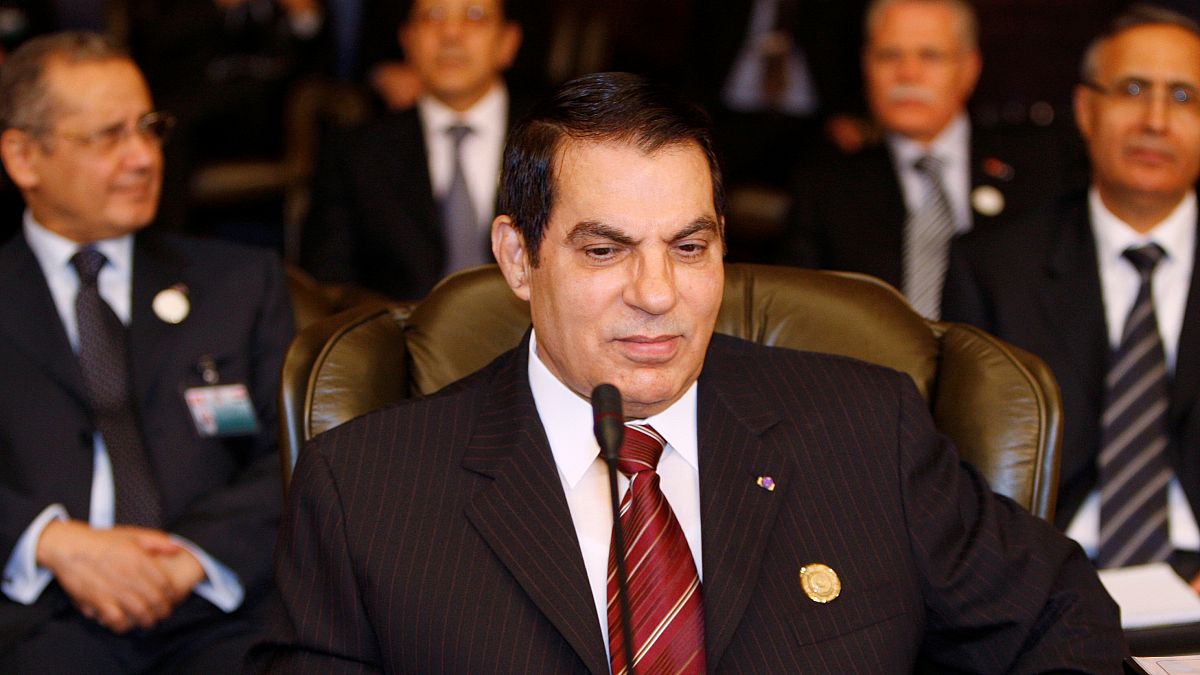The former leader fled to Saudi Arabia in 2011.
Former Tunisian president Zine El-Abidine Ben Ali has died, his lawyer, Mounir Ben Salha, confirmed to Euronews by telephone.
Ben Ali fled to Saudi Arabia after the 2011 revolution in Tunisia that began the Arab Spring and later spread to Egypt, Libya, Bahrain, and Syria.
He had ruled Tunisia for 23 years and amassed an enormous fortune, with one report claiming that he took one-and-a-half tonnes of gold with him to Saudi Arabia, stolen from Tunisia's central bank.
Electoral fraud
Ben Ali came to power in November 1987 after convincing doctors to declare that the previous president-for-life, Habib Bourguiba, was senile and unfit to rule.
Initially feted for bringing economic growth and tourism to Tunisia, his intolerance of political freedom and lavish lifestyle alienated him from Tunisians.
In 2002, he held a widely-criticised referendum on extending his personal rule, which he won with 99% of the vote and amidst widespread allegations of electoral fraud.
He "won" the 2009 election - his fifth term in office - with 90% of the vote.
Two years later the self-immolation of Mohamed Bouazzi, a street vendor, led to massive protests in Tunis.
On January 14, 2011, after days of clashes in Tunisia in which dozens were killed, Ben Ali fled to Saudi Arabia.
The revolution in Tunisia inspired Egyptians and Libyans to rise up against their own dictators, and in February 2011 Egyptian president Hosni Mubarak stepped down.
In Libya, the protests against Muammar Gaddafi became an armed rebellion, which finally saw the LIbyan dictator chased down and murdered by rebels in October 2011.
Success story
But while Egypt's first democratically elected president, Mohamed Morsi, was overthrown by a military coup in 2013 and Libya post-Gaddafi descended into violence and disorder, Tunisia was the only Arab Spring country to emerge from the revolutions with a functioning democracy.
On September 16, elections were held to find a successor to Mohamed Beji Caid Essebsi, who died in July aged 92. Two candidates advanced to the next round, which will be held following parliamentary elections in October.
